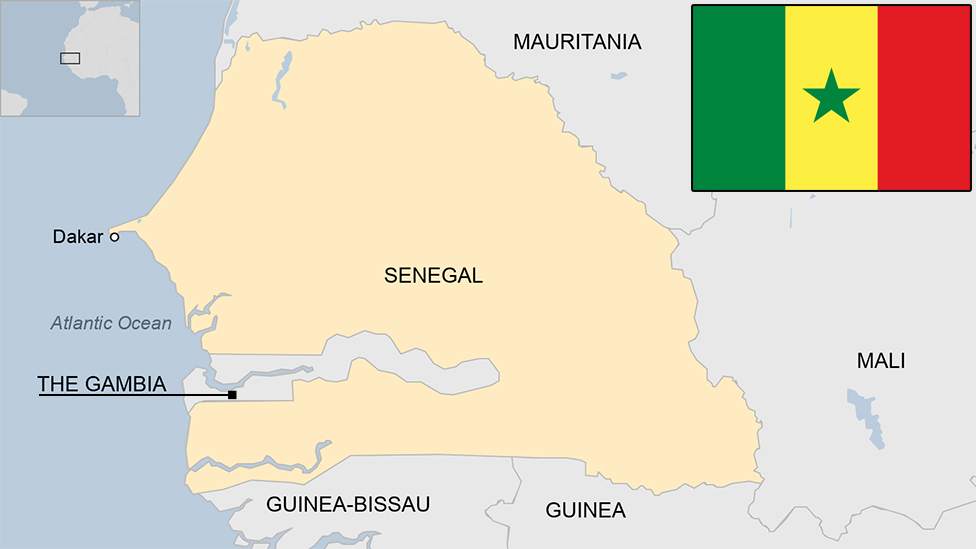Senegal protests: Ousmane Sonko calls for bigger protests after rape charge
- Published
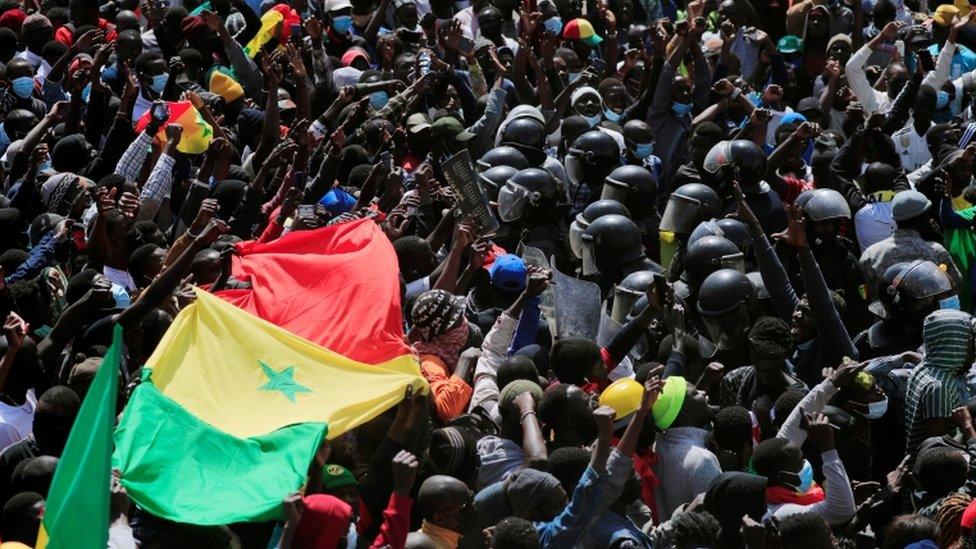
Mr Sonko's supporters squared up to security forces outside the court on Monday
Senegalese opposition leader Ousmane Sonko has called for more protests against President Macky Sall after being released on a rape charge.
Mr Sonko's arrest last week sparked days of deadly protests.
He is accused of assaulting a woman who worked in a massage parlour but he says the case is politically motivated to stop him running again in elections.
Mr Sall denies this and has appealed for calm, asking protesters to leave the issue to the courts.
At least eight people have been killed in the protests, the most serious Senegal has seen in several years.
After Mr Sonko was released on Monday, he called for much larger protests but made a point that they should be peaceful and that he was not looking to overthrow the president.
"We are not asking the people to go and unseat Macky Sall... But let's be clear, the revolution is marching its way to 2024," Mr Sonko is quoted by Reuters news agency as saying, referring to the next presidential election.
Mr Sall also addressed the issue on Monday, for the first time, in a televised speech.
He said that young people were taking to the streets because they don't have jobs. He promised extra funding for entrepreneurship and to shorten the nightly curfew, imposed because of the coronavirus pandemic, which has stifled the informal economy, Reuters adds.
How significant are the protests?
On Sunday a top Senegalese official whose job is to settle conflicts, Alioune Badara Cissé, said the authorities "need to pause and speak with our youth" and warned that "we are on the verge of an apocalypse".
Who is Ousmane Sonko, why was he arrested and why are people on protesting in Senegal?
Before Monday's hearing, in which Mr Sonko was released on bail, demonstrators scuffled with security forces outside court in the capital, Dakar. Police had deployed armoured cars and tear gas was also fired at protesters in central Dakar on Monday, after protesters pelted officers with stones.
An opposition collective known as the Movement for the Defence of Democracy had called for three days of mass protests, starting on Monday but the situation was much calmer than in previous days.
Schools in the capital have also been ordered to close for a week following the unrest.
Why are these protests so serious?
Mr Sonko's arrest is seen as a "lightning rod for much broader discontent and frustrations," Francois Rouget of security consultancy Control Risks told the BBC's Newsday programme.
"These [protests] come at a difficult economic time - there are lots of frustrations coming from curfews that have been imposed to tackle coronavirus, so we are seeing a lot of convergences in grievances," he said.
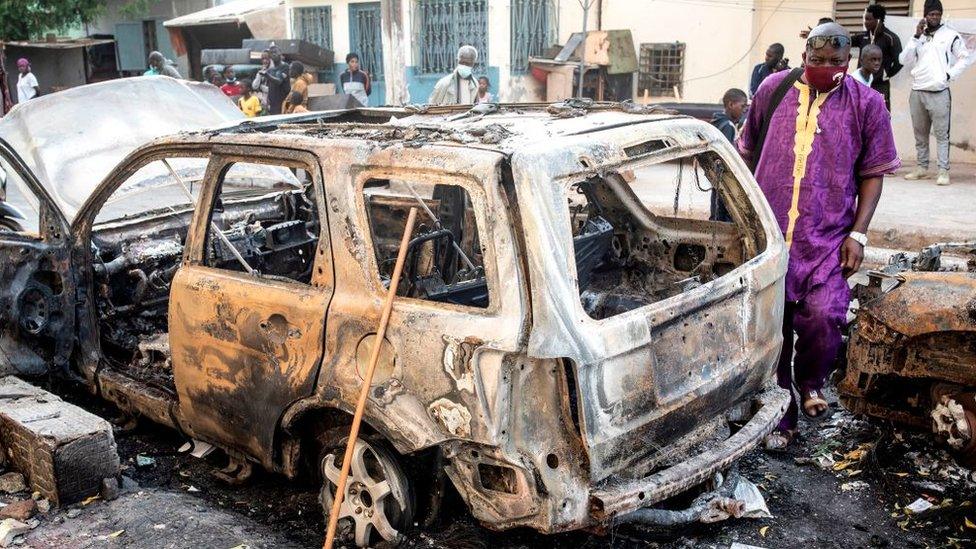
Cars were burnt near the headquarters of a radio station thought to be close to Senegal's government
Much of Mr Sonko's support comes from the large group of young Senegalese who feel disillusioned about their prospect of finding work.
A lot of the anger is also directed at President Sall, who is being accused of using the judiciary for his political aims.
Two other opposition leaders were excluded from the 2019 election after convictions which they say were politically motivated. Mr Sonko is currently the country's only major opposition leader.
There are also suspicions that Mr Sall will try and stand for a third term in the next presidential election.
Why are French interests being attacked?
France is the largest trading partner and investor in Senegal, and French companies are accused of stifling local-owned businesses.
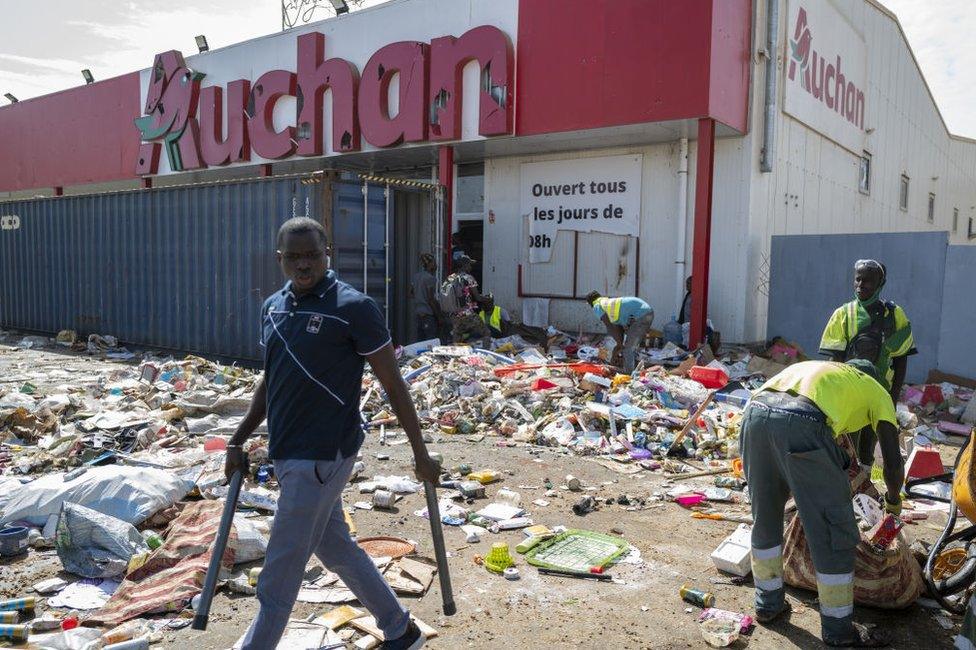
Branches of the French supermarket Auchan have been targeted during protests
French-owned supermarket chain Auchan said on Friday that there had been attacks on 14 of its 32 stores across the country. Protesters have also attacked other French-owned companies such as Total petrol stations, Air France offices and Orange mobile phone outlets.
Protesters consider France, the former colonial ruler, a strong ally of President Sall.
Who is Ousmane Sonko?
A 46-year-old former tax inspector, he was fired in 2016 after making allegations of tax anomalies against the president's brother, Aliou Sall.
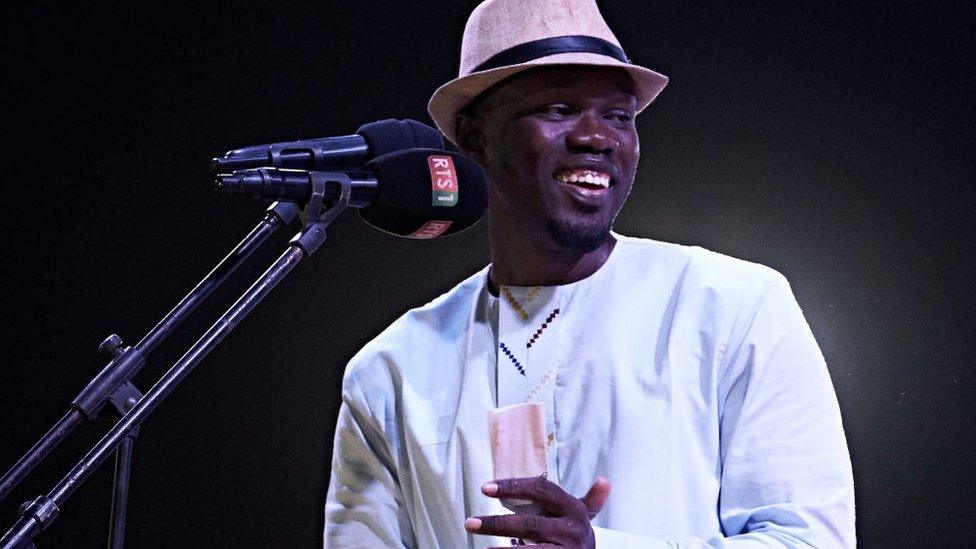
Ousmane Sonko, 46, is popular among Senegal's youth
Mr Sonko had at that point already become involved in politics, forming his Pastef party in 2014, and was elected to parliament in 2017.
His parliamentary immunity was removed last week, after he was accused of rape by a 20-year-old woman, who says she has since received death threats.
Mr Sonko's critics dismiss him as a demagogue and agitator but he is popular with young people for his pan-African rhetoric and condemnation of France's continued economic role in Senegal.
Mr Sonko grew up in the southern town of Bignona, which has seen some of the worst violence.
Related topics
- Published9 July 2024
